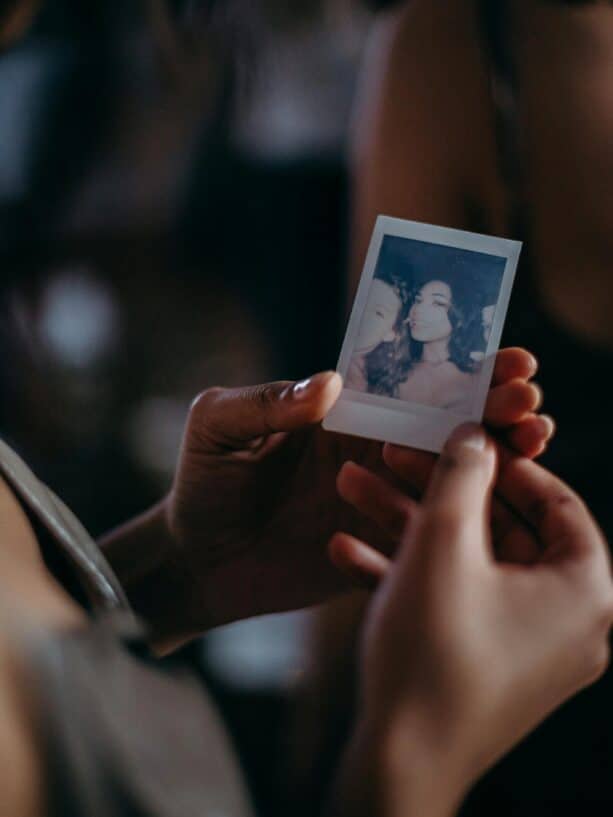TL;DR –Many people dismiss their childhood trauma because they had material privilege—food, shelter, private schools, vacations—believing these advantages somehow negate emotional and psychological wounds. This stems from historical definitions of trauma that emphasized visible physical abuse and poverty, overlooking how emotional neglect, verbal cruelty, and psychological manipulation can devastate a child regardless of socioeconomic status. The guilt of having "so much" while suffering emotionally creates an additional barrier to recognizing legitimate trauma, as if designer clothes could offset a father's daily belittlement or a mansion could compensate for chronic emotional abandonment.
The truth is that trauma is subjective—it's about your nervous system being overwhelmed, not about meeting specific external criteria. You can grow up wealthy and still experience profound relational trauma that shapes your adult struggles with self-worth, relationships, and emotional regulation. Material privilege and childhood trauma aren't mutually exclusive; accepting this reality is crucial for healing. When you stop dismissing your pain because others "had it worse" materially, you can finally seek appropriate support and begin creating the beautiful adulthood you deserve, regardless of how privileged your childhood appeared from the outside.
Over the last 13 years as a trauma therapist, my clients have surfaced this question. “Was it childhood trauma if I was privileged?”
There’s a bifurcated thought many of us hold. That if we had food, a roof over our heads, toys and clothes, that our experiences – painful as they may have been – don’t “count” as childhood trauma because materially we had what we needed.
I personally and professionally believe it’s critical that we debunk this myth. We must unpack why and how many of us hold this belief. And understand why holding a more flexible view on childhood trauma existing against the landscape of a privileged past is so important.
Moving beyond the “historical view” of childhood trauma.
Historically, the recognition of childhood trauma has predominantly focused on physical abuse and violence.
This narrow perspective can be traced back to early research and societal understandings. This placed emphasis (understandably) on visible, tangible forms of harm and poor adult outcomes (mentally and socially) because of these experiences.
Research and social studies have historically centered physical abuse toward children—and of course, this focus makes sense. Until relatively recently, researchers and clinicians often overlooked the psychological and emotional aspects of trauma. This was likely due to the difficulty of quantifying non-physical abuse. Also, the relatively early stage of this second wave of traumatology work.
The recent evolution of trauma-informed care.
But, increasingly (thank goodness!), studies have shown something different. Exposure to childhood trauma beyond physical abuse is also associated with adult psychiatric disorders. It is also associated with poor biopsychosocial outcomes, highlighting the long-term consequences of such experiences and validating them.
The recent evolution of trauma-informed care reflects a growing understanding of the broad spectrum of childhood trauma. And, in my opinion, it is much-needed. We must start recognizing that trauma can stem from a variety of sources, not just limited to physical violence.
In the last few years, understanding of and dialogue about childhood trauma now accepts emotional abuse, neglect, and exposure to household dysfunction.
All of these have profound effects on physical, emotional, developmental, and behavioral health across our lifespan.
Curious if you come from a relational trauma background?
Take this 5-minute, 25-question quiz to find out — and learn what to do next if you do.
START THE QUIZ(Side note: my entire body of work in this world is an attempt to join in that larger collective conversation and to be an antidote to internalized historical thinking about what “counts” as childhood trauma so that more of us can see ourselves and our personal histories more clearly and seek out the appropriate kind of care.)
But, despite these advances in our conversations, research, and the way we deliver trauma-informed care, the previous historical emphasis on physical abuse has, for many of us, shaped societal attitudes towards childhood trauma, often marginalizing the subtler but equally damaging effects of emotional and psychological trauma.
Bottom line: many people still consciously and unconsciously have an internalized, historical view of what “counts” as childhood trauma and fail to see themselves and their experiences in the words “childhood trauma.”
Material privilege can make it even harder to see your childhood trauma.
On top of internalized historical beliefs about what “counts” as childhood trauma, those who grew up with material comfort and privilege may find it even more difficult to see themselves inside the term “childhood trauma.”
They might ask themselves questions like:
“If I had all the food I needed, a roof over my head, clothes to wear, toys, and even went to private school, does my experience “count” as childhood trauma if I had so much privilege?”
“Mom and dad were pillars of the community and we had the biggest, best home in the neighborhood. We looked like the ideal family and were probably the richest in town. So I’m not sure what I experienced counts”
“I shouldn’t complain: we went on vacations, we had a beach house, we had household help. I wasn’t poor. Isn’t childhood trauma when you don’t have enough food and you were beaten?”
The difficulty individuals from materially privileged backgrounds face in recognizing their own experiences of emotional and mental trauma as “childhood trauma” is multifaceted.
As I talked about earlier, societal narratives and internalized beliefs about what constitutes trauma often emphasize physical abuse, neglect, or severe economic hardship, overshadowing the impact of emotional and psychological distress.
This can lead many to have a dismissive attitude towards their suffering, as they might feel that without visible scars or tangible hardships, their experiences do not “count” as trauma.
The notion of material privilege adds an additional layer of fogginess, as it can evoke guilt (“But we had so much!”) or diminish the perceived legitimacy of their pain, feeding into a belief that their material advantages should somehow immunize them against psychological harm.
Childhood trauma and material privilege are not mutually exclusive.
However, it is so critical to remember that trauma is not defined by the external circumstances that cause it but by the individual’s subjective experience of those events.
I cannot stress this enough: trauma is what happens when an event or series of events subjectively overwhelms the brain and body’s ability to cope effectively.
So this means that one-time events, ongoing stress, and commonly overlooked causes such as deeply disappointing experiences or parental mental cruelty, can ALL leave lasting effects irrespective of one’s socioeconomic status depending on the subjective experience of the person who endured these experiences.
To speak plainly, you can have grown up in a mansion and had nannies and cooks but if your father belittled you daily, outright telling you what a disappointment you were, rejecting you for failing to live up to his standards, failing to provide you with secure attachment and indeed causing you to internalize beliefs about your own unworthiness and defectiveness, do you think the closet full of designer kids’ clothes would offset those negative impacts?
Speaking as a licensed psychotherapist and childhood trauma recovery expert, I’m here to tell you that no, it would not offset those negative impacts.
The bottom line is this: Childhood trauma and growing up in privilege are not mutually exclusive.
Professional Support for Privilege and Trauma
Working with a trauma-informed therapist can be especially valuable when privilege complicates your ability to validate childhood wounds—when guilt about having “so much” prevents you from acknowledging how much you suffered emotionally.
A skilled therapist understands that trauma isn’t measured by material circumstances but by the subjective experience of being overwhelmed, helping you separate the designer clothes and private schools from the emotional abandonment or psychological cruelty you endured. In therapy, you can explore how privilege might have actually intensified your trauma—the pressure to be grateful, the invalidation from others who couldn’t see past your advantages, the isolation of suffering in silence while appearing to “have it all.”
This work often involves grieving not just what you didn’t receive emotionally, but also the additional burden of having your pain dismissed because of material comfort. For those struggling with self-worth despite outward success, exploring whether you feel guilty about complaining about family members can help untangle the complex emotions around acknowledging trauma within privilege.
The therapeutic space becomes somewhere your pain is valid regardless of your childhood zip code, where emotional neglect is recognized as equally damaging whether it happened in a mansion or a studio apartment.
What’s the point of even asking this question?
When we see ourselves, our stories, and the impact of our past more clearly, we’re more equipped to A) legitimize our pain and begin to confront reality (both critical and crucial steps in trauma healing) and B) seek out the right kind of support and help to begin properly recovering from the impacts of our past.
It’s never too late to have a beautiful adulthood, despite our adverse early beginnings.
And the sooner we can accept and confront the reality of our painful past, the sooner we can get to work on giving ourselves that beautiful adulthood.
Now I’d like to hear from you in the comments below:
Did you relate to today’s essay? Have you ever dismissed your own childhood trauma because you grew up with privilege?
If you feel so inclined, please leave a message so our community of 30,000 blog readers can benefit from your share and wisdom.
Here’s to healing relational trauma and creating thriving lives on solid foundations.
Warmly,
Annie
References
- Goodwin, J. (1988). Post-traumatic symptoms in abused children. Journal of Traumatic Stress, 1, 475-488. https://doi.org/10.1002/JTS.2490010407.
- Gelkopf M. JAMA Network Open. Association of Spontaneous Abortions With Risk of New-Onset Atrial Fibrillation: A Nationwide Population-Based Cohort Study in South Korea. JAMA Netw Open. 2018;1(7):e184448. doi:10.1001/jamanetworkopen.2018.4488
- Forkey H, Szilagyi M, Kelly ET, Duffee J; Council on Foster Care, Adoption, and Kinship Care; Council on Community Pediatrics; Council on Child Abuse and Neglect; Committee on Psychosocial Aspects of Child and Family Health. Trauma-Informed Care. Pediatrics. 2021;148(2):e2021052580.





